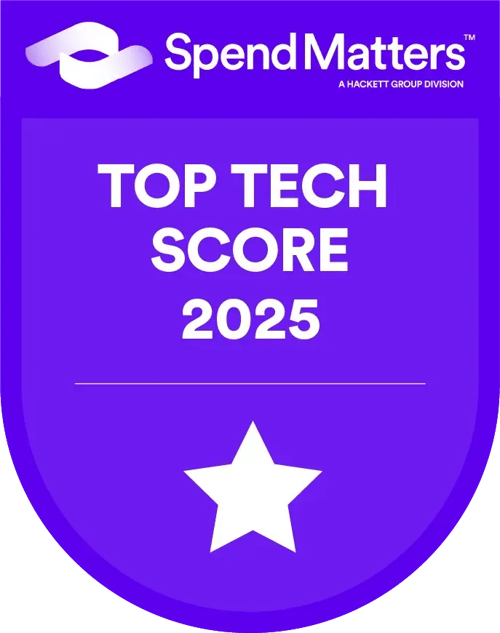There is much hype around ChatGPT, and it’s well deserved. Analytics platforms—including Sievo—are eagerly testing the first use cases of Large Language Models (LLMs) like OpenAI’s GPT.
With GPT-4 Turbo and ChatGPT Enterprise recently announced, it's clear that the tech is breaking through to more commercial applications.
But what does this mean for Procurement? Is it as revolutionary as it’s made out to be?
The short answer is yes—if the training data is good enough.
In this article, I’ll speculate 6 ways GPT, or more generically LLMs, could change the game for procurement analytics.
Warnings about ChatGPT and LLMs
Generative Pre-Trained Transformer (GPT) is a family of language models developed by the company OpenAI. OpenAI provides access to the models through APIs but does not openly share the model weights or training code. Other chatbot products like Bing Chat and Google Bard are built on different model models.
ChatGPT Enterprise, announced in August 2023, claims to offer enterprise-grade security and privacy. According to their most recent internal research, over 92% of Fortune 500 teams have already begun adopting the tools.
More broadly speaking, open-source LLMs can be trained with any data. However, there are security concerns when discussing business use cases of LLMs:
-
Confidential data, such as supplier information, prices paid, or customer information, should never be entered into public or free-to-use services.
-
LLMs like GPT, when developed on a private server and trained under clear security protocols, are safer, although proper data handling, access controls, and encryption are also vital components of a secure deployment.
So, with that disclaimer out of the way, let’s get into it!
Wondering how Sievo integrates GenAI into its solutions? See here! 🤖
Use cases of GPT/LLMs for Procurement
So, how can Generative AI like ChatGPT be used in procurement?
Here are 6 (speculations) on potential use cases:
1. Synthesizing unstructured data
Generative AI is great at making connections and synthesizing unstructured data. Large data sets of supplier interactions (e.g., emails and other text-based documents) could be used as training data. Once certain text-based patterns are recognized, automated summaries and key information can be extracted.
Imagine having a birds-eye view of global communications with a supplier. Pair this with AI-based transcription tools collected from online meetings, and there’s the potential to get summary outputs, or even “flags,” when things of note are happening.
(I’ll cover how LLMs can process line item text data for classifications in point 4).
2. Capturing external data and making it useable
ChatGPT itself was trained on billions of web pages as one of its training sets, even though they were a snapshot in time.
For procurement, automated insights from the internet have the potential to reach a new level of sophistication. The tech already exists to scan the internet, databases, and marketplaces for these kinds of data points.
But LLMs have the power to translate those insights into human-like language and predictions, understand more qualitative content like news and reviews, and condense it in ways that could be applied to analytics. This would improve the level of oversight for risk assessment.
3. Generating briefs and text-based documents
LLMs have the capability to generate natural language that provides contextual information. Say you are preparing for a supplier negotiation: a simple prompt could pull together key data points and historical facts that you’d find relevant to a supplier negotiation, e.g., past meetings with this supplier and their outcomes, ongoing issues, and opportunities.
When combined with relevant data points extracted from analytics solutions like price, spend, and CO2 data, this could be a huge productivity boost.
Another use case is generating documents, like SOWs, RFPs, and POs. Automatically generated weekly briefs could be sent straight to your email or quarterly presentations.
Since GPT can be trained with templates, and formats are quite consistent, the results could be surprisingly accurate—though subject to human review, of course. With that being said, a good enough attitude should be employed at times—are humans ever 100% error-free?
4. Data classification and mapping
Since procurement data requires a lot of cleansing and classification before analysis, GPT can be leveraged for this hard work. It could provide internal-effectiveness use cases around classification, CO2-mapping, supplier normalization, and data engineering (mapping data sources to a destination scheme).
If there’s one thing LLMs seem the most readymade for, it’s textual data classification. However, the caveat again is that the more training data fed to the model, the better the results.
Best-of-breed analytics providers who have structured approaches and knowledge of classification practices are in an excellent position to make these tools shine.
Watch Webinar: 5 Ways GenAI is Changing Procurement Today and Tomorrow
5. Automated vendor communication
Chatbots have already been explored in the procurement workflow with so-called Negotiation Bots. GPT can generate human-like communications to streamline the process of requesting and receiving information from suppliers, such as pricing, lead times, and product specifications.
For instance, Sievo Partner Beroe has a Procurement AI powered by ChatGPT (Beroe LiVE.Ai named Abi). Abi can help users with market information, supplier discovery, and you can ask Abi any category or procurement-related questions.
6. Risk Mitigation and Compliance
Reading the fine print in contracts and regulations is something humans struggle with. It’s not that we can’t do it well, but we, unfortunately, are prone to mistakes. This makes managing risk and ensuring contract compliance critical priorities for procurement professionals.
An LLM like GPT could run in the background analyzing contracts, identifying potential risks, and suggesting mitigation strategies. Comparing contract data to regulatory information—even if just highlighting areas to focus on—can help procurement monitor regulatory changes and alert teams to any updates that may impact their supply chain.
Wide-spread adoption of LLMs on the horizon
There will be a lot of open-source LLM models available. And ChatGPT isn’t the only player, considering Bing Chat and Google Bard are also racing ahead. The cost of using LLMs will drastically reduce, close to becoming a commodity.
GPT-4 Turbo, the newest update announced on November 6, 2023, claims to be more capable, cheaper, and easier for developers to build their own assistive AI apps embedded in their software that can interact within the system, giving both internal and end-user value.
LLMs require immense data to train. ChatGPT cannot be further trained by end-users. OpenAI, however, does expose some of their GPT (and other) models through APIs, and some of them can be fine-tuned for specific purposes.
While large amounts of data are indeed beneficial for training robust models, the quality of the data is often more critical than the quantity. To gain the best of both worlds (lots of data points and high-quality data points), leading providers like us are in the best position to leverage data for LLM training, as we have done with Machine Learning (ML).
Sievo has for years actively applied ML in our processes and will do the same with LLMs. We wrote an entire book around AI in procurement in 2019, and I’m excited about the potential of LLMs like GPT for procurement.
Contributors: Thank you Alireza Samar, Pietari Virkkunen, and Erkki Paunonen for your contributions!
Partner with Sievo
At Sievo, we are always open to exploring mutual value-creation opportunities with other technology providers. Whether you specialize in AI applications, strategic sourcing, supplier management, procure-to-pay, or any other segment within the E-procurement domain, we are more than happy to discuss complementary offerings and partake in joint bidding processes. Contact our Partners team to learn about how we collaborate with and integrate leading AI-powered technologies.


